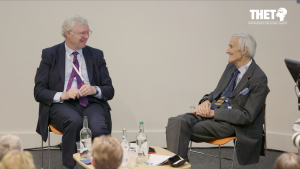Become a powerful communicator as a healthcare professional and start raising healthcare literacy
Miscommunications are an avoidable waste of time. Avoid future headaches and raise healthcare literacy for everyone by weeding out the following seven mistakes. (To commit them to memory instantly, you can use a memory technique).
To practice concise writing, I strongly recommend the Hemingway Editor. For a high-level spell-checker that also picks up on grammar, style, and tone, use Grammarly.
Mistake 1: Trying to sound intelligent
Long, complicated words and sentences are no use to anyone.
If you can shorten it, do.
To illustrate, the sentence above started as: “If you can replace a word with a shorter one, it’s usually better to do so.”
After I had blurted the thought down, I tightened it: “If you can shorten a word, it’s often better to.”
Finally: “If you can shorten it, do.”
The final iteration is so direct and snappy it has a chance of sticking in your mind. As a sound bite, it might pop up next time you’re composing an email.
Mistake 2: Slipping into jargon
A fantastic question to ask yourself when writing is, “Would a random stranger understand what I’m writing?”
We always fall into patterns of speech unique to our communities, whether professional or social. Jargon is not a problem when speaking with others within the right groups, but everyone else just scratches their head and stops listening.
Mistake 3: Redundant words
Example: This very subtitle was “Mistake 3: Using redundant words” before I noticed the irony. Under the first mistake, I wrote “…might pop up in your mind next time…”. I cut “in your mind” because the mind is assumed.
Keep asking yourself, “Does this word have value?”
If the sentence makes sense without a particular word, you can cut it.
Mistake 4: Metaspeak
Metaspeak is language that talks about what you are saying, or the fact that you are about to say it. Better to just say it.
Examples:
- “I would like to take this opportunity to…”
- “Would you allow me to point out that…”
- “It is my opinion that…”
- “I believe…”
- “It has become clear to me that…”
I’ll sometimes use “I believe,” but only when I choose to communicate that I’m unsure. Every word has purpose. Waste not.
Mistake 5: Passive tense
The passive tense is not a clarity killer but should be reduced.
Oops, I used passive tense in the last sentence. I could phrase “…should be reduced” as “…you should reduce it”. Can you hear the difference?
We often use the passive tense in business to soften a question that might cause offense. Example: “Why wasn’t this done yesterday?” instead of “Why didn’t you do this yesterday?”
The passive tense causes distance between the action and the actor. You want that distance when probing someone at work but it’s exactly what you don’t want when communicating something complex.
Mistake 6: Too many adverbs
In the previous section, I first wrote “…soften a question that might be taken offensively” and edited it to “…soften a question that might cause offense.”
“Be taken” is passive tense. “Offensively” is an adverb (word that describes a verb).
Like passive tense, adverbs are not capital crimes but are not ideal. Reduce where you can.
Mistake 7: Backwards-referencing
Referencing previous sentences is one of the hardest habits to break. I often do it.
Right there, I did it. Oh no! I did it again! When will I stop doing this thing I mentioned a number of sentences ago? When will you need to break from your flow of reading to skip back and remind yourself what I’m talking about?
We refer back to previous sentences with words like “it”, “this”, “that”, etc. Avoiding this makes you a much better writer because it is so challenging to make each sentence work on its own.
To re-write what I just said: “When you make each sentence stand on its own merit, your writing improves dramatically… no!…your writing becomes POWERFUL.”
The Golden Rule of Writing
Each. Word. Has. Purpose.




